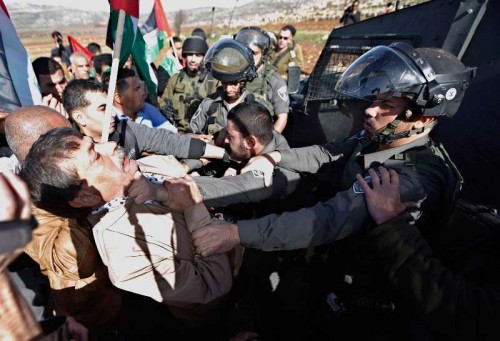
The German government called for a complete investigation into the death of Palestinian cabinet minister Ziad Abu Ein, who died Wednesday in an incident with Israeli security forces.
“The tragic death of Ziad Abu Ein in the West Bank represents a new low in the weeks-long tensions between Israelis and Palestinians,” Foreign Minister Frank-Walter Steinmeier said.
“Now it is important to promptly shed light to the conditions of his death, in a comprehensive manner, one that will be comprehensible to all,” Germany’s senior diplomat added.
The Palestine Liberation Organisation’s (PLO) head of the Committee to Resist Settlements and the Wall, Ziad Abu Ein, was killed while taking part in an olive-planting event in the village of Turmusaia, north of Ramallah.
The incident took place on a plot of land confiscated from Palestinian families for the expansion of a Jewish settlement.
According to eyewitnesses, Israeli soldiers supported by Border Police attempted to use tear gas and rubber bullets to disperse a crowd of around 100 people who were protesting peacefully during the olive-planting ceremony.
Witnesses charged that Abu Ein was head-butted by a helmet-wearing soldier, struck repeatedly in the chest and inhaled large amounts of tear gas.
After suffering breathing problems, he went into a coma before being transferred to Ramallah Medical Centre, where doctors declared him dead.
According to an autopsy performed by two forensic specialists, a Palestinian and a Jordanian, Abu Ein died after inhaling tear gas and being hit in the chest by the Israeli police.
An Israeli pathologist said that Abu Ein, who was the head of the Committee to Resist Settlements and the Wall, and minister without portfolio in the Palestine Authority government, died of a heart attack after a soldier shoved and dragged him by the neck.